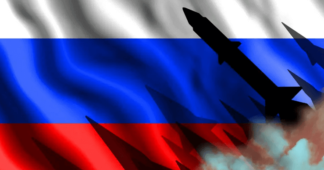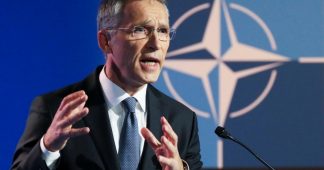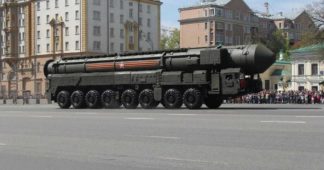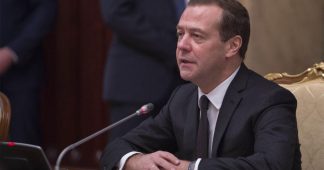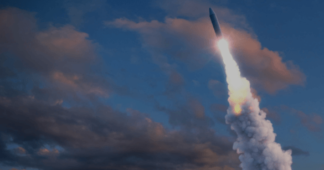Sep 26, 2024
On Wednesday, Russian President Vladimir Putin held a session of the permanent meeting of the Russian Security Council on nuclear deterrence, where he touched upon key issues pertaining to Russia’s security.
President Putin outlined plans to update Russia’s nuclear doctrine, the Fundamentals of State Policy on Nuclear Deterrence.
The core principle of nuclear weapon use remains the same – they are a last resort to protect sovereignty. However, the changing geopolitical landscape and emerging military threats have required adjustments.
“At the same time, we see that the current military and political situation is changing dynamically, and we are obliged to take this into account, including the emergence of new sources of military threats and risks for Russia and our allies,” he emphasized.
The Russian President noted that Russia reserves the right to use nuclear weapons in case of aggression against Russia and Belarus.
“We reserve the right to use nuclear weapons in the event of aggression against Russia and Belarus, as a member of the Union State. All these issues have been agreed upon with the Belarusian side, with the President of Belarus, including if the enemy, using conventional weapons, creates a critical threat to our sovereignty,” Putin said at the meeting.
Clarifications of the foundations of Russia’s state policy in the field of nuclear deterrence have been agreed with Belarusian President Alexander Lukashenko as a member of the Union State, President Putin noted.
“I note that all the clarifications are deeply calibrated and commensurate with modern military threats and risks with regard to the Russian Federation,” he said.
Putin added that today, the nuclear triad remains the most important guarantee of the security of the Russian state and its citizens and a tool for maintaining strategic parity and balance of power in the world.
The fundamentals of state policy on nuclear deterrence need to be adapted to current realities, Putin stated.
“It is necessary to adapt the provisions of the strategic planning document to current realities,” he said.
A deep and comprehensive analysis of Russia’s approaches to the possible use of nuclear forces and their possible adjustment has been conducted, Putin added.
“Over the past year, specialists from the Defense Ministry, the Foreign Ministry, the Security Council apparatus and other agencies have conducted a deep and comprehensive analysis and assessed the need to adjust our approaches to the possible use of nuclear forces,” he said.
It has been proposed to make a number of clarifications in terms of definitions of the conditions for Russia’s use of nuclear weapons, Vladimir Putin elaborated.
The scenarios under which Russia could theoretically use nuclear weapons are outlined in Russia’s military doctrine and the “Fundamentals of State Policy in the Field of Nuclear Deterrence.”
According to the documents, this is possible in the event of aggression against Russia or its allies using weapons of mass destruction or aggression using conventional weapons, when the existence of the state itself is threatened.
Russia has always sought to prevent the proliferation of nuclear weapons and their components, Putin stated.
“We have always taken a highly responsible approach to such issues, well aware of the colossal power of these weapons, and have sought to strengthen the international legal basis for global stability, to prevent the spread of nuclear weapons and their components,” he said.
Russia has always taken a highly responsible approach to the use of nuclear forces, which is an extreme measure to protect the country’s sovereignty, President Putin pointed put.
At the session, Putin suggested discussing an issue related to updating the foundations of the state policy in the field of nuclear deterrence.
“Along with the military doctrine, this is the document that officially defines and details Russia’s nuclear strategy. First of all, the basic principle of the use of nuclear weapons is fixed, namely, the use of nuclear forces is an extreme measure to protect the country’s sovereignty. I emphasize that we have always taken a highly responsible approach to such issues,” Putin said.
The updated state policy in the field of nuclear deterrence proposes to consider aggression by a non-nuclear state with the participation of a nuclear state as their joint attack on the Russian Federation, Vladimir Putin explained.
“The draft framework expands the category of states and military alliances in respect of which nuclear deterrence is carried out, and supplements the list of military threats for the neutralization of which nuclear deterrence measures are carried out,” he said.
Russia, aware of the colossal power of nuclear weapons, has always sought to strengthen the international legal framework for global stability.
“We have always taken a highly responsible approach to such issues, well aware of the colossal power of these weapons, we have always sought to strengthen the international legal basis for global stability, to prevent the spread of nuclear weapons and their components,” Putin clarified.
Russia may consider the use of nuclear weapons as soon as it receives reliable data on the massive launch of aerospace attack means, including missiles and drones, and their crossing of the Russian state border.
“The conditions for Russia’s transition to the use of nuclear weapons are also clearly fixed. We will consider such a possibility already when we receive reliable information about a massive launch of aerospace attack means and their crossing of our state border. I mean strategic or tactical aircraft, cruise missiles, drones, hypersonic and other aircraft,” the president said.
We remind our readers that publication of articles on our site does not mean that we agree with what is written. Our policy is to publish anything which we consider of interest, so as to assist our readers in forming their opinions. Sometimes we even publish articles with which we totally disagree, since we believe it is important for our readers to be informed on as wide a spectrum of views as possible.
